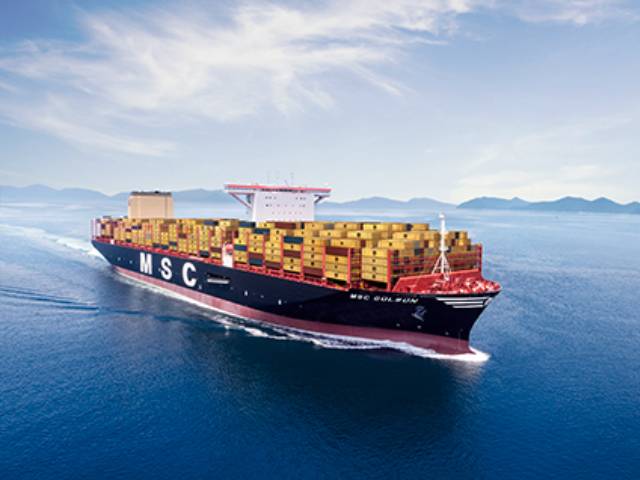MSC takes its commitment to decarbonisation extremely seriously. However, this is a complex endeavour that requires commitment and long-term vision. To reach carbon neutral future is a long journey that will take years and significant investments with strategic partners and enablers.
Despite the disruptions to the supply chains and the huge demand for cargo transportation in an extremely challenging, congested and evolving market, the company continues to focus on improving energy efficiency in its fleet of over 600 ships.
- In 2020, MSC recorded a 44.3% reduction in relative CO2 emissions (compared to 2008 baseline).
- The ratio of CO2 emissions per ton of cargo the company moves is among the lowest in the industry – latest EEOI 13.98*.
- MSC operates one of the most efficient fleets in the industry – MSC Gülsün, the flagship of its latest class of vessels, emits just 7.49g CO2/ton/mile by design.
- The data reported in the EU MRV database reflects MSC’s leadership position (volume) in Europe and should be put into context with the amount of cargo carried – MSC deploys around 58% of its vessels and carries almost 64% of its TEUs on services calling the EU**.
- In 2020, MSC recorded that while its emissions rose by 1%, the amount of cargo moved increased by 3%***. This clearly indicates that MSC’s long term commitment to investing in low-carbon technologies and extensive new-build and retrofit programmes helps boost performance and minimise environmental impact.
MSC fully supports the IMO’s policy goals to decarbonise shipping and is actively exploring and trialling a range of alternative fuels and technologies on top of significant energy efficiency improvements across its fleet.
MSC believes some form of global market-based-measure, incorporating carbon pricing, could help the industry to decarbonise by reducing the price gap between fossil fuels and zero-carbon fuels as they become available. However, only with options at scale for commercially-viable low or zero-carbon vessels can carbon pricing be a truly effective tool to catalyse the shift towards a zero-carbon future for international shipping.
Further to the company’s own efforts to minimise environmental impact, MSC actively contributes to a number of industry and multi-discipline groups, coalitions and associations to accelerate decarbonising across the entire shipping sector.









































